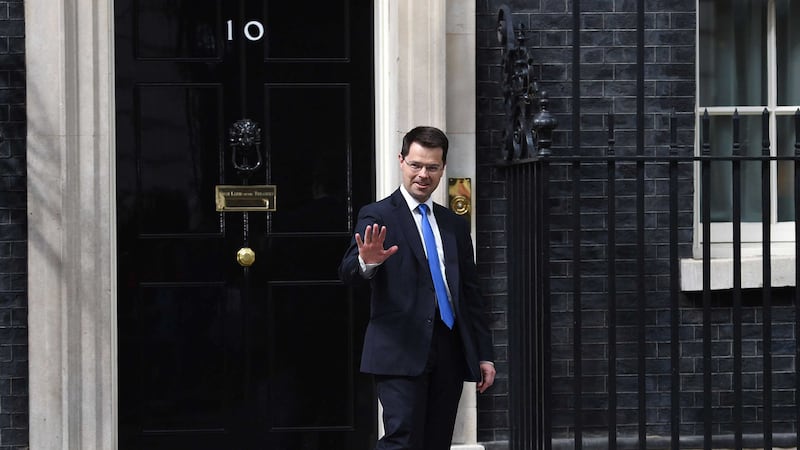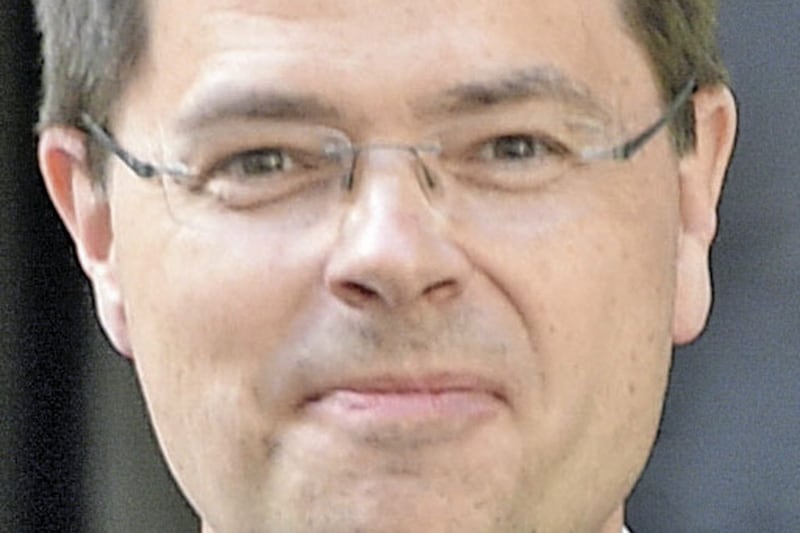SINCE the signing of the Good Friday Agreement and particularly the devolution of policing and justice powers in 2010, some have questioned whether there is any real need for a secretary of state.
The debate has gained little traction, however, and so the post first created in 1972 after the suspension of Stormont prevails, albeit increasingly a symbolic one.
James Brokenshire (48), Conservative MP for Old Bexley and Sidcup on the outer edge of south-east London, becomes the 19th secretary of state, a role that has been filled by some significant political figures including William Whitelaw, Douglas Hurd and Peter Mandelson.
The lawyer's profile has yet to match some of those predecessors and as he flies into Belfast for the first time, he may be quietly hoping this remains the case, as that would suggest his tenure would be completed without controversy.
The secretary of state's responsibilities are not what they once were, but the former immigration and security minister still faces several significant challenges, not least helping manage the fall-out from last month's shock Brexit vote.
A Remain campaigner and ally of Prime Minister Theresa May, Mr Brokenshire's relatively affluent constituency – where former Tory leader Edward Heath was MP until 1983 – eschewed his advice and was one of the few parts of London that voted to leave the EU.
But like the rest of the cabinet he will be on message and repeating the 'Brexit means Brexit' mantra – much to the chagrin of the north's pro-EU politicians.
The desire in Belfast, Dublin and London is to ensure stability and keep east-west and north-south relations cordial.
However, if as predicted the remaining EU members choose to play tough and insist on a harder border, then this uncomfortable alliance would be prone to rupturing, forcing the secretary of state to become more partisan.
Prior to June 23, the biggest issue was resolving the impasse around the legacy of the Troubles.
Mr Brokenshire's predecessor Theresa Villiers had hinted at a breakthrough immediately before she was removed from the NIO.
Her successor will be expected to maintain that momentum, though there's little to suggest that with a former Home Office minister in charge we'll see a major shift away from the British government's view that legacy probes are unfairly one-sided, coupled with an insistence on protecting national security – an approach charaterised by the Irish government as a "smothering blanket".
Described by reporter Luke May at the Bexley Times as a "quite personable, career politician" who was a strong advocate for local businesses, Mr Brokenshire's parliamentary record suggests he's a party conformist who has done little to rock the boat but enough to please his political masters.
Daily Mail sketch writer Quentin Letts was less flattering, recently describing him as "robotic", while republicans are privately painting Mr Brokenshire as a "spook" and "privatiser".
So what now for his predecessor Theresa Villiers, who yesterday spurned her new leader's offer of a demotion and instead chose what in all likelihood will be political oblivion, without even a worthwhile memoir to pen?
In her valedictory Ms Villiers said the people of Northern Ireland would always have a special place in her heart, though it's unlikely that sentiment will be widely reciprocated.
She was by no means the worst secretary of state in the post's 44-year history, but you'd struggle to recall a memorable episode in the Chipping Barnet MP's tenure.
Succeeding Owen Paterson in 2012, at a time when Stormont's DUP-Sinn Féin led coalition was grinding towards a state of inertia, within three months of Ms Villiers's appointment loyalists launched violent street protests after Belfast City Council's decision to fly the Union flag on designated days only.
She said at the time that those protesting were bringing "shame" on the flag but remained largely on the sidelines during weeks of upheaval.
Subsequently overseeing three talks processes – Haass, Stormont House and Fresh Start – Ms Villiers can take some credit for last year finally securing a deal on welfare reform and devolving corporation tax but her inability to deliver on the past is arguably her greatest political failure.
Dismissed by many commentators as disengaged and dispassionate, the pro-Brexit Ms Villiers will likely be best remembered as one of the blandest of Northern Ireland's secretaries of state.








